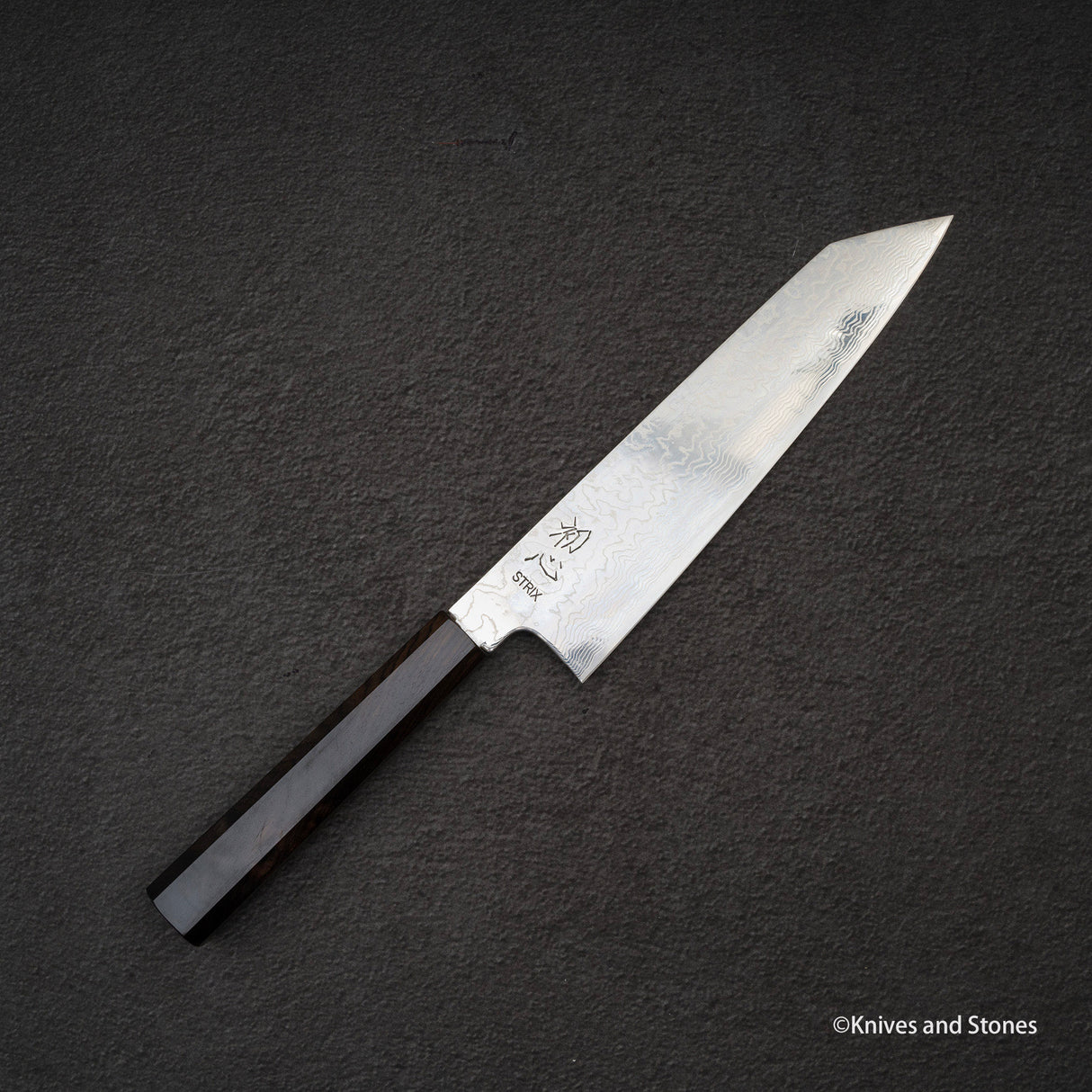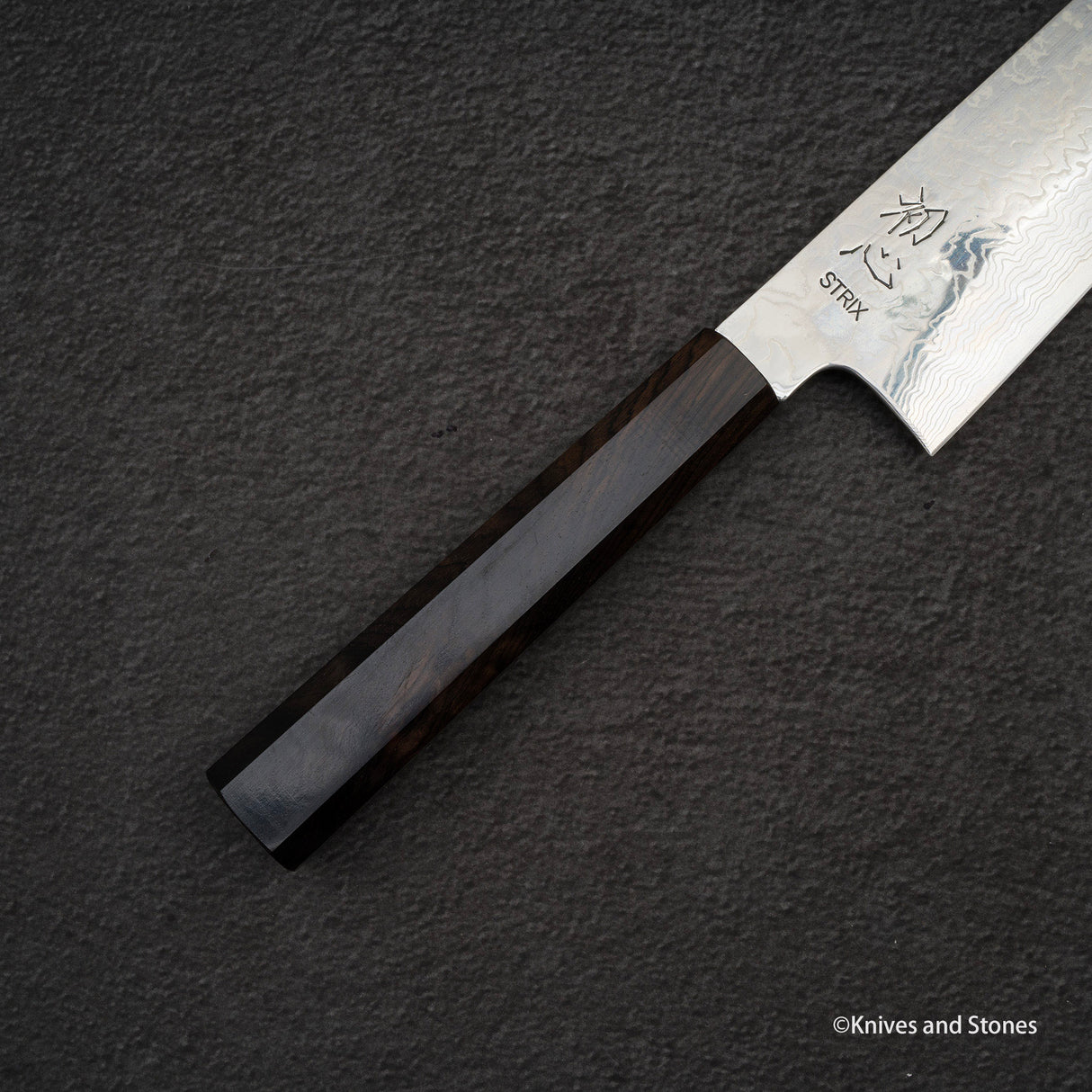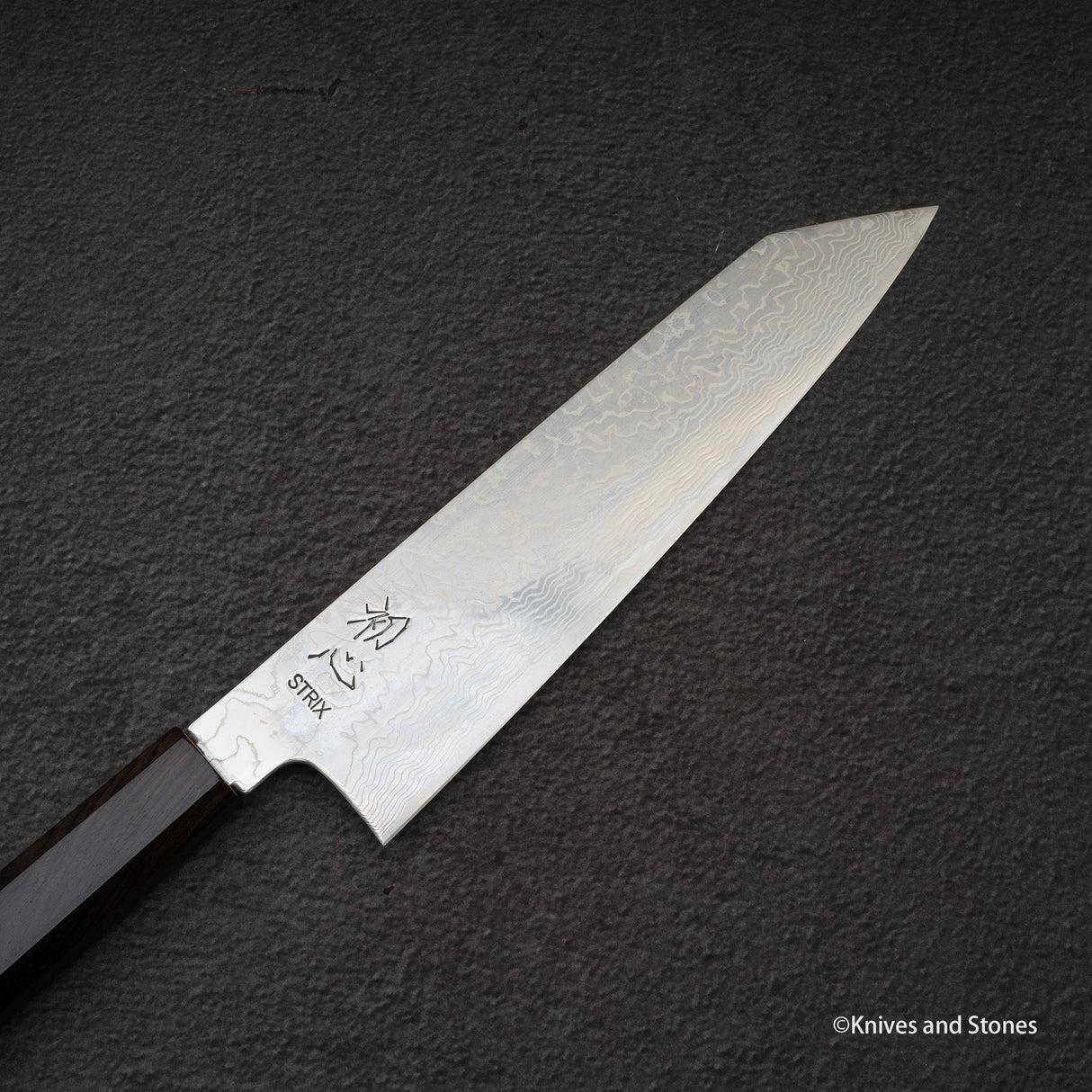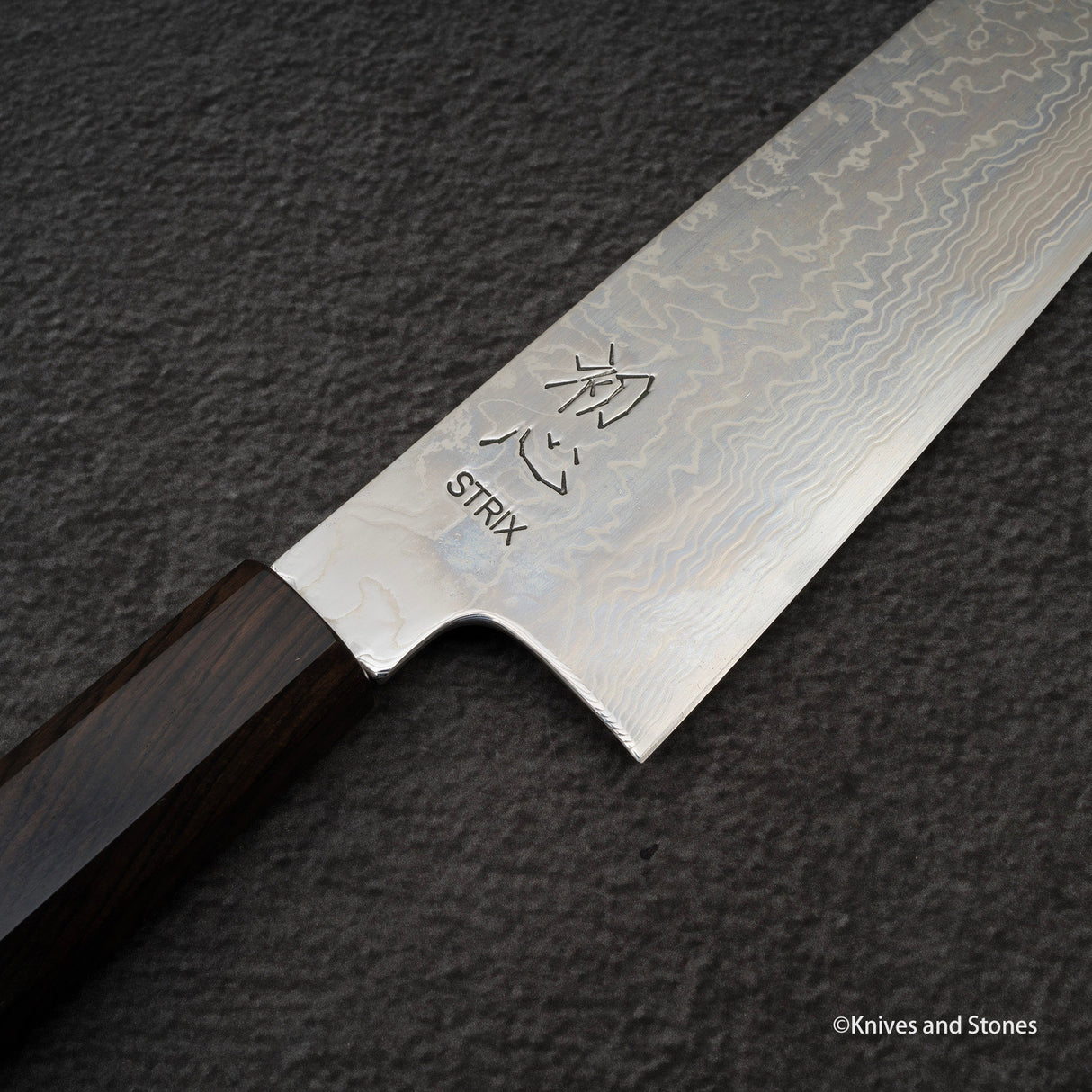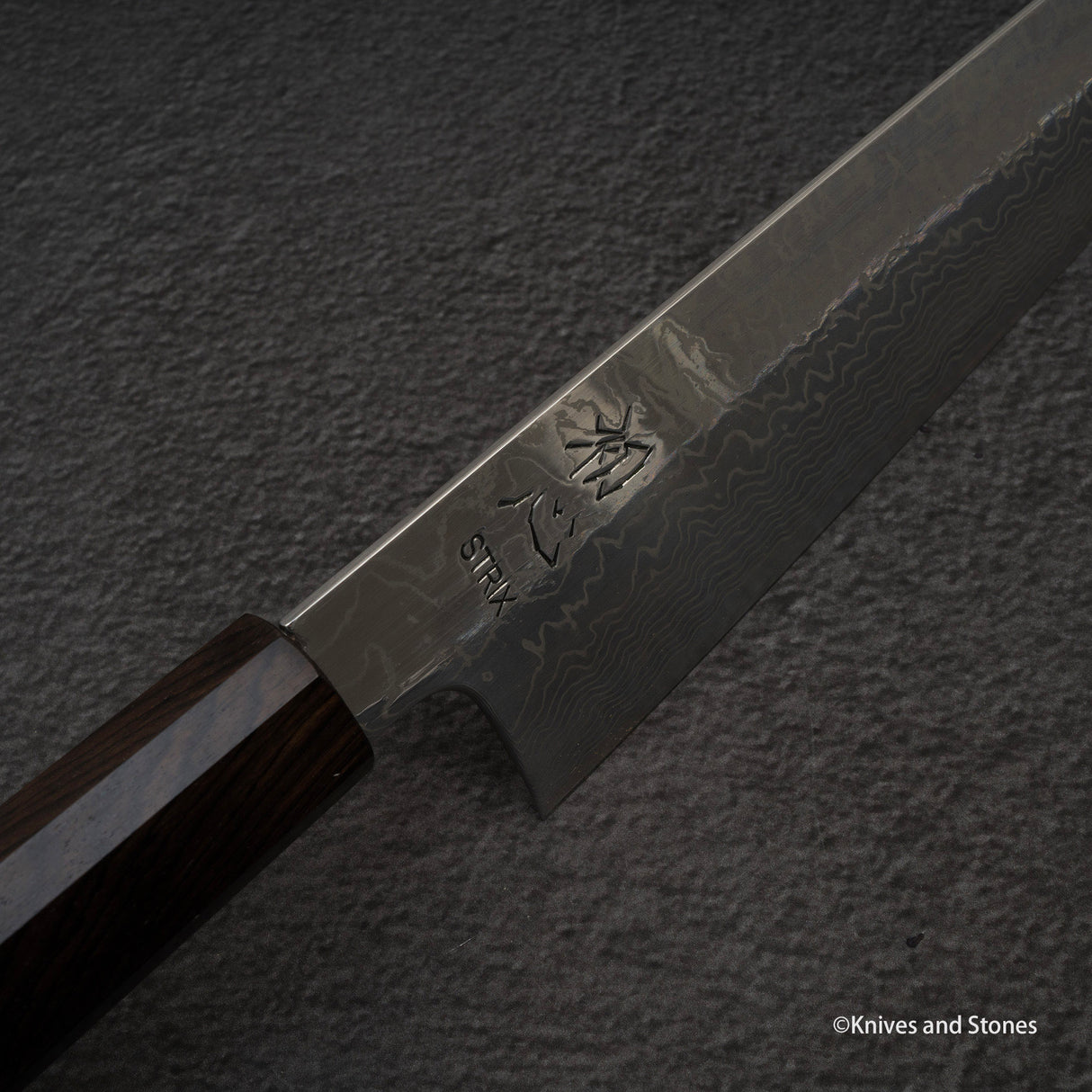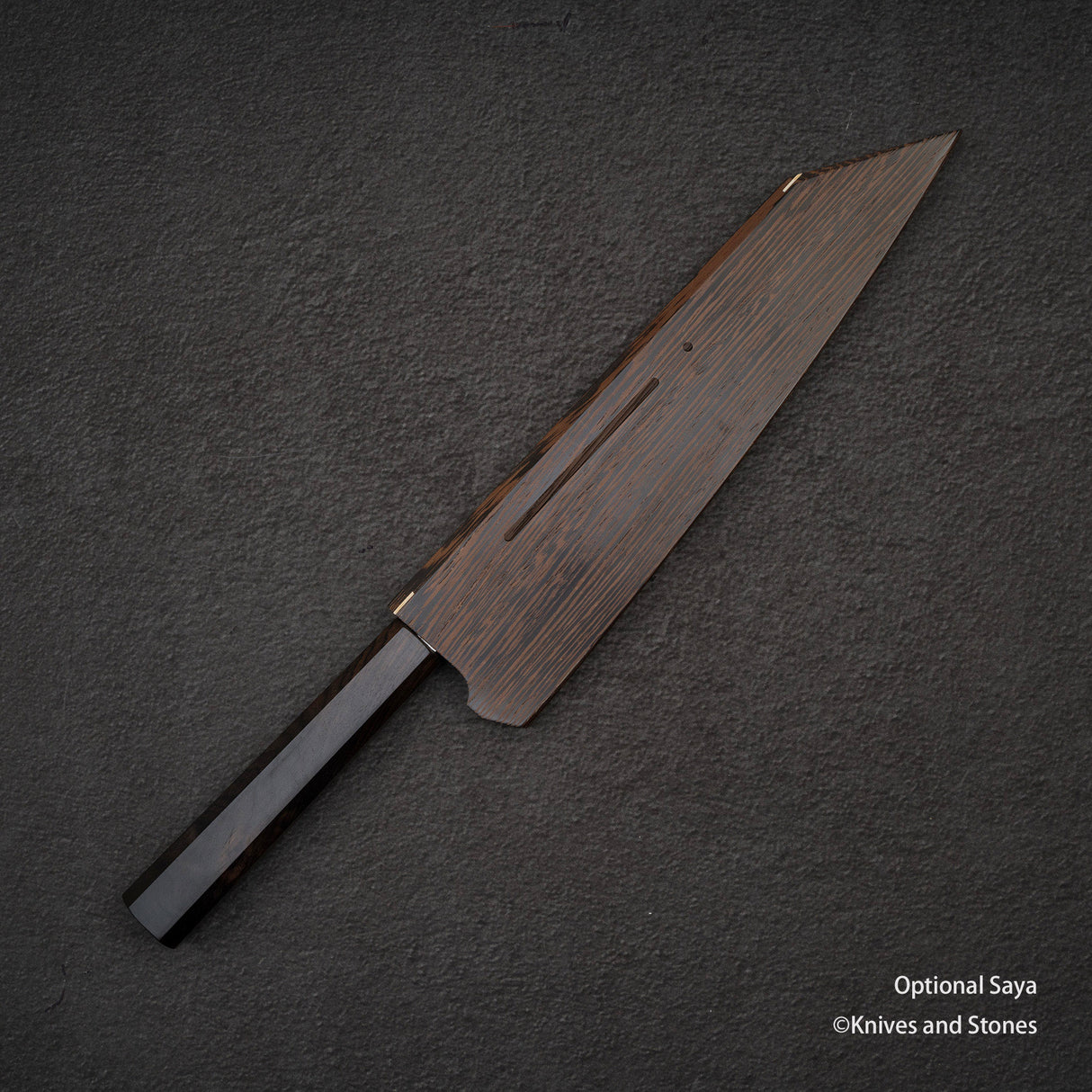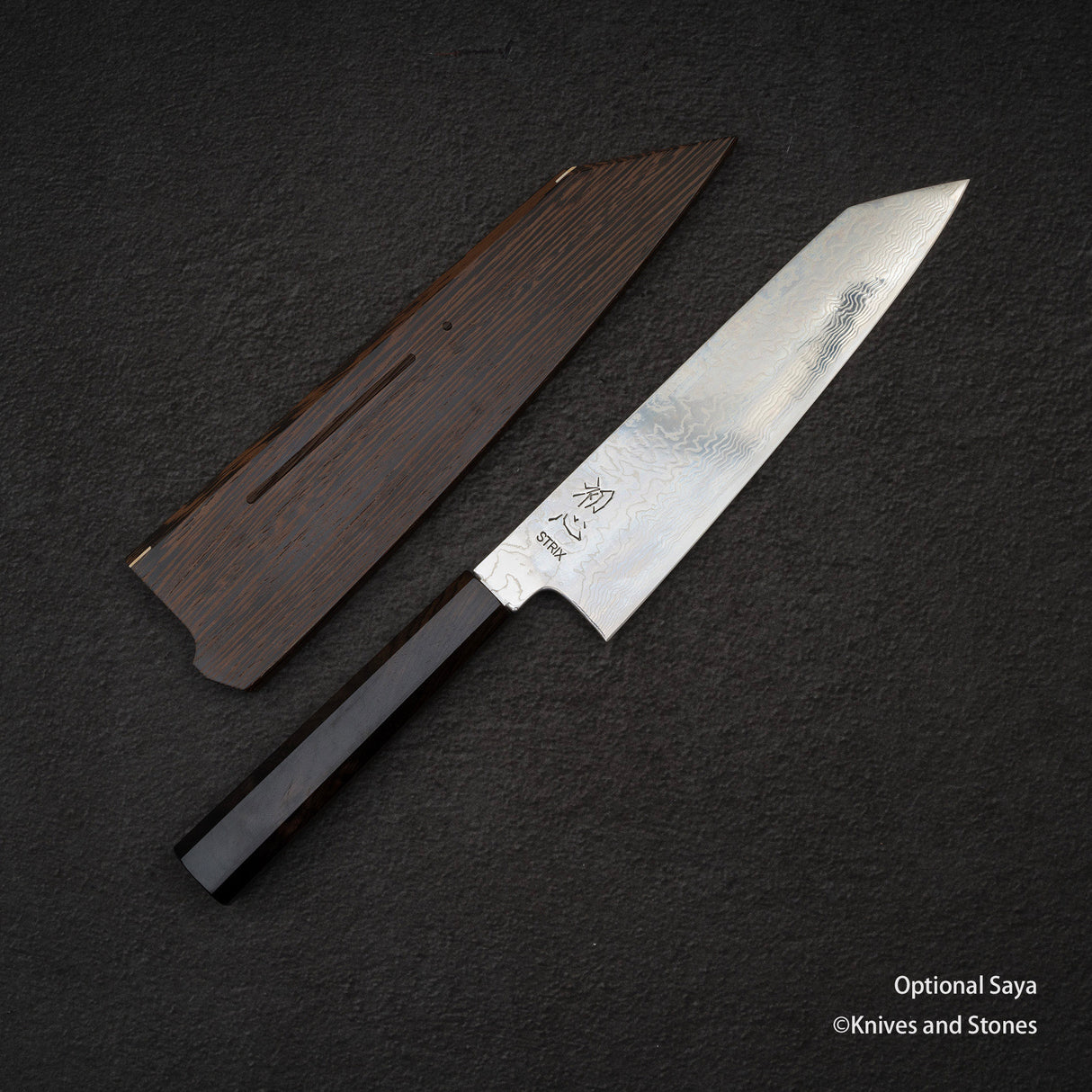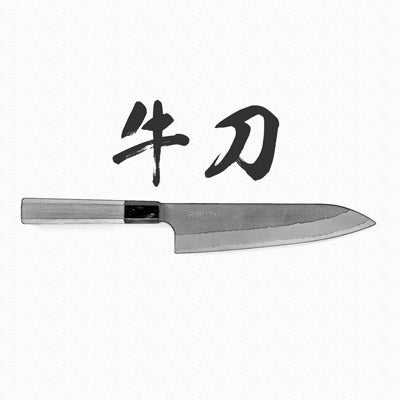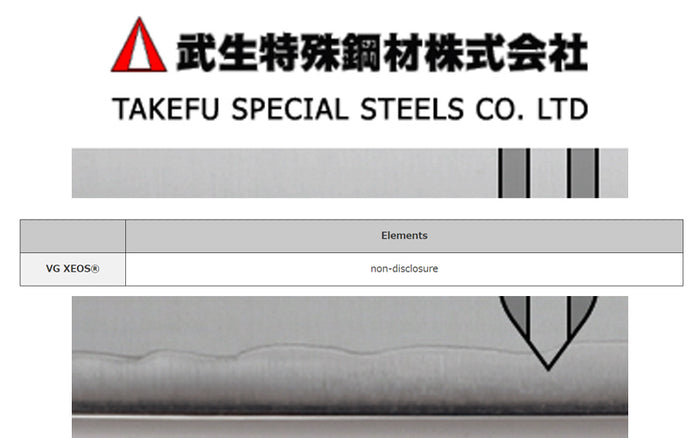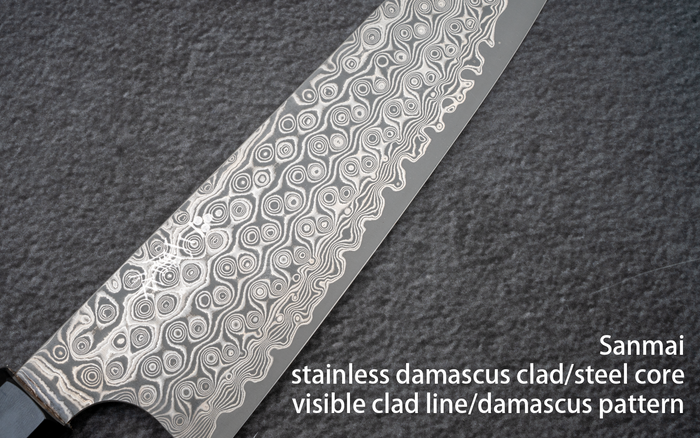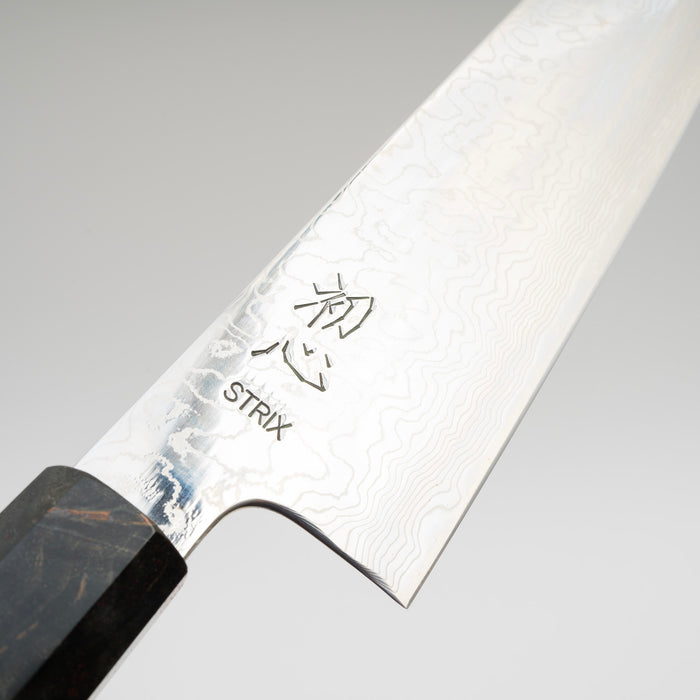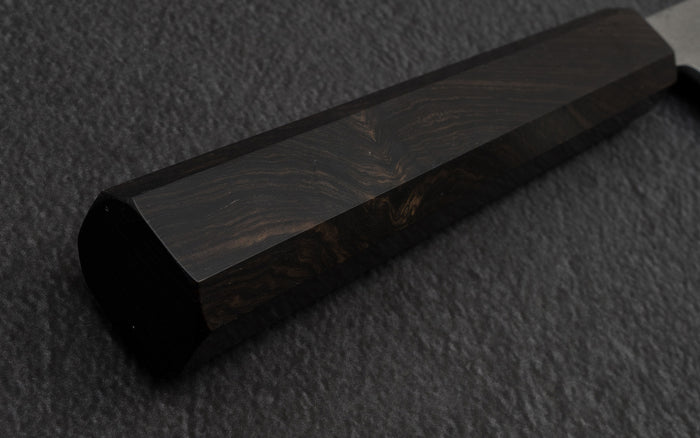Hatsukokoro STRIX K-Tip Damascus Gyuto 210mm Ebony Handle
Hatsukokoro STRIX K-Tip Damascus Gyuto 210mm Ebony Handle is backordered and will ship as soon as it is back in stock.
Pickup available at 2 Bishop St
Usually ready in 24 hours
Detailed Specifications
| Line | Hatsukokoro by Sukenari STRIX Damascus |
| Profile | Gyuto / Chefs Knife |
| Bevel Type | Double Bevel |
| Weight | 186 g 6.56 oz |
| Edge Length | 203 mm .7.99 inch |
| Heel Height | 49 mm .1.93 inch |
| Width @ Spine | 2.7 mm 0.11 inch |
| Width @ Mid | 2.4 mm 0.09 inch |
| Width @ 1cm from Tip | 1.1 mm 0.04 inch |
| Steel | SPG STRIX | Powdered Stainless |
| Blade Construction | Sanmai - Stainless Damascus Clad |
| Hardness (HRC) | 63 - 65 |
| Surface Finish | Mirror Polish |
| Handle | Octagonal Ebony |
| Region | Toyama |
| Best for |
|
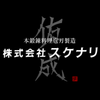
Video Review
| Pros | Cons |
|
|
|
Care Instruction
- Don't cut hard things! Japanese knives are brittle so bone hacking is a NO NO!
- Wash with neutral detergent after use, and wipe dry;
- Please don't wash knife with dishwasher, it will damage the wood handle;
- Be careful not to leave the knife close to a heat source for a long time;
- It is a lot more dangerous to cut with a blunt knife than a sharp knife!
- It is best to sharpen a Japanese knife regularly on a waterstone.

